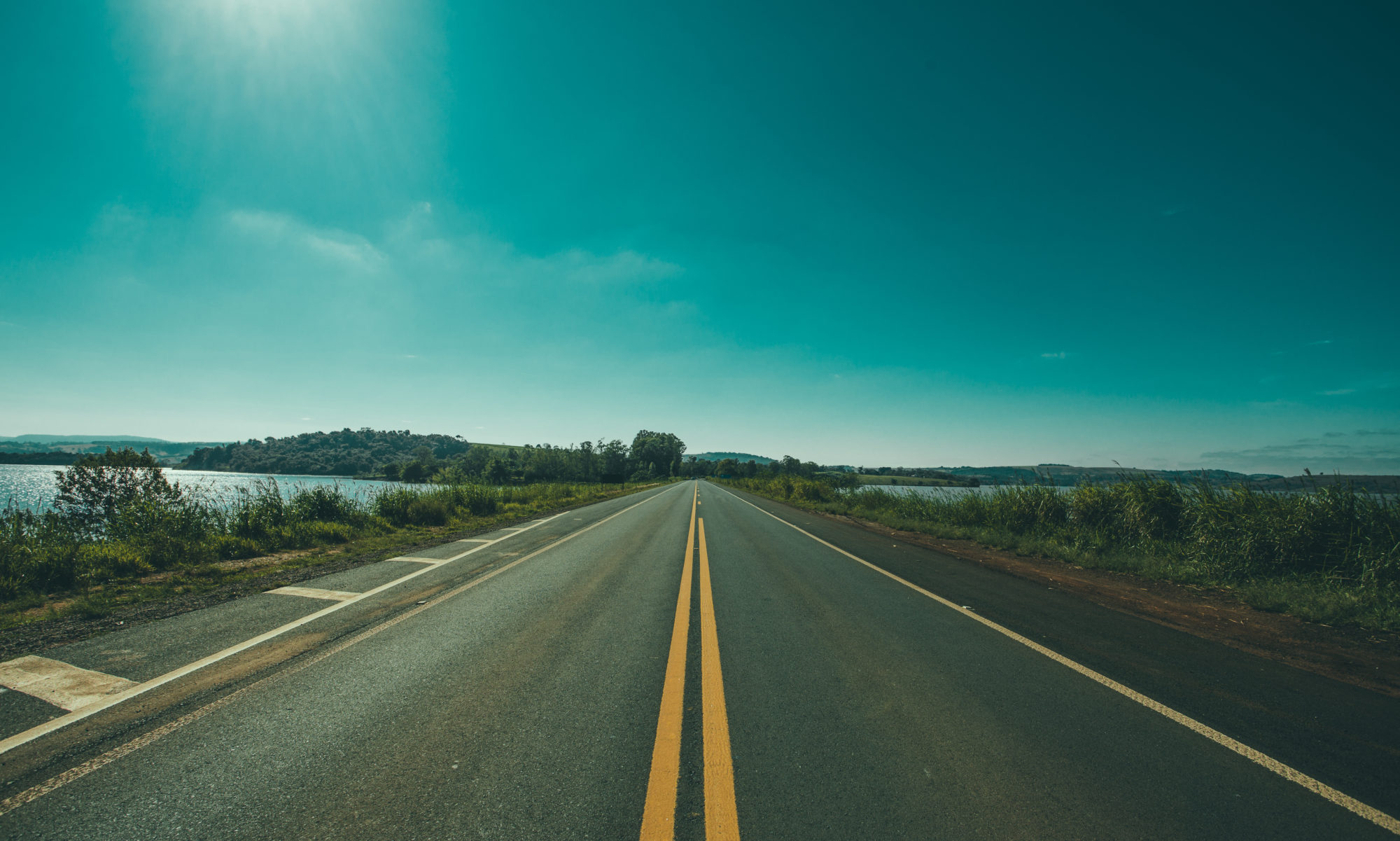First thing: it’s November 23rd, my sister Lynne’s birthday. Happy Birthday, Sis!
As predicted, we linger in Cape Maclear for three days.
One day we take a catamaran trip to a nearby island to do some snorkeling.
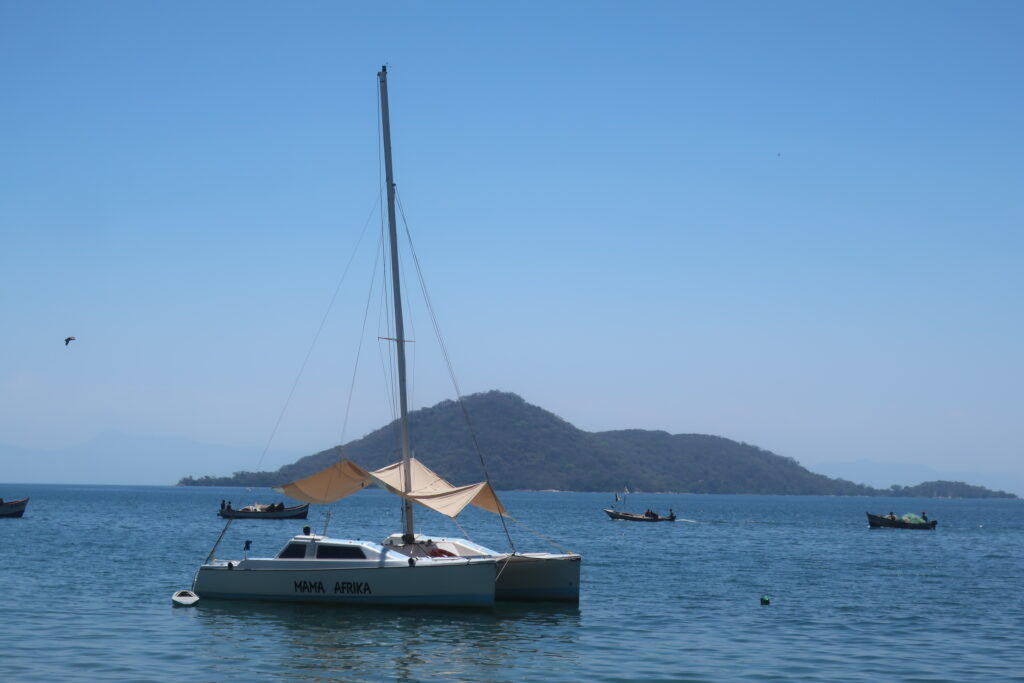
We have the boat to ourselves. As in many places, there are few other guests.
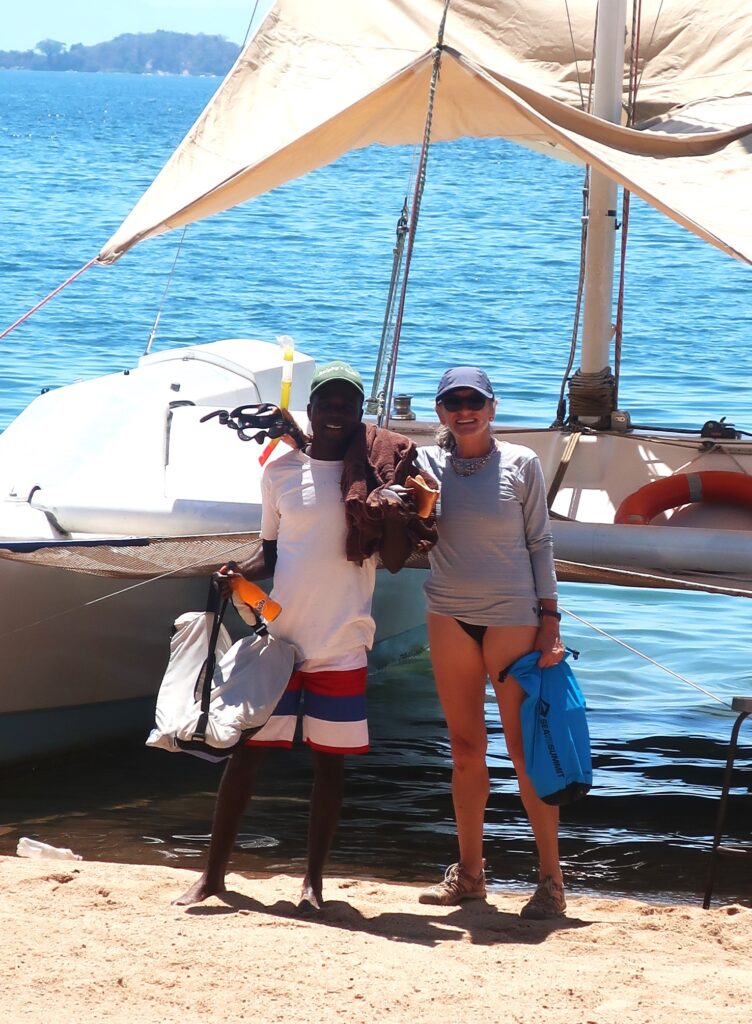
We get to a quiet bay that’s swarming with colourful fish of the cichlid family.
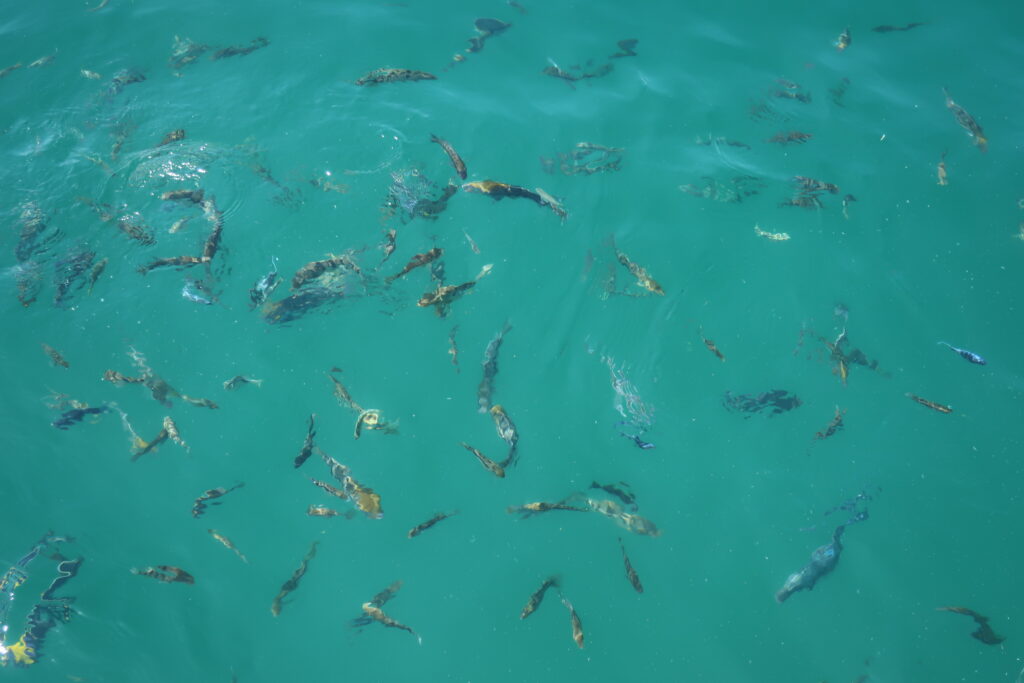
Lake Malawi is famous for these. It’s like swimming in an aquarium.
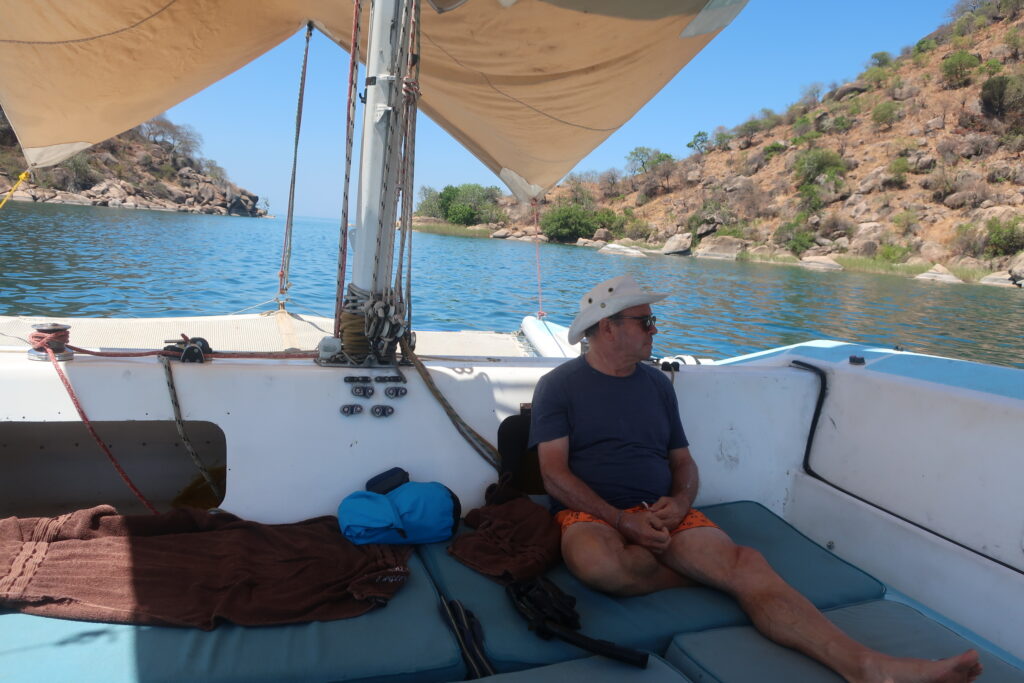
We set off in search of fish eagles, common in the area. These look a lot like bald eagles.
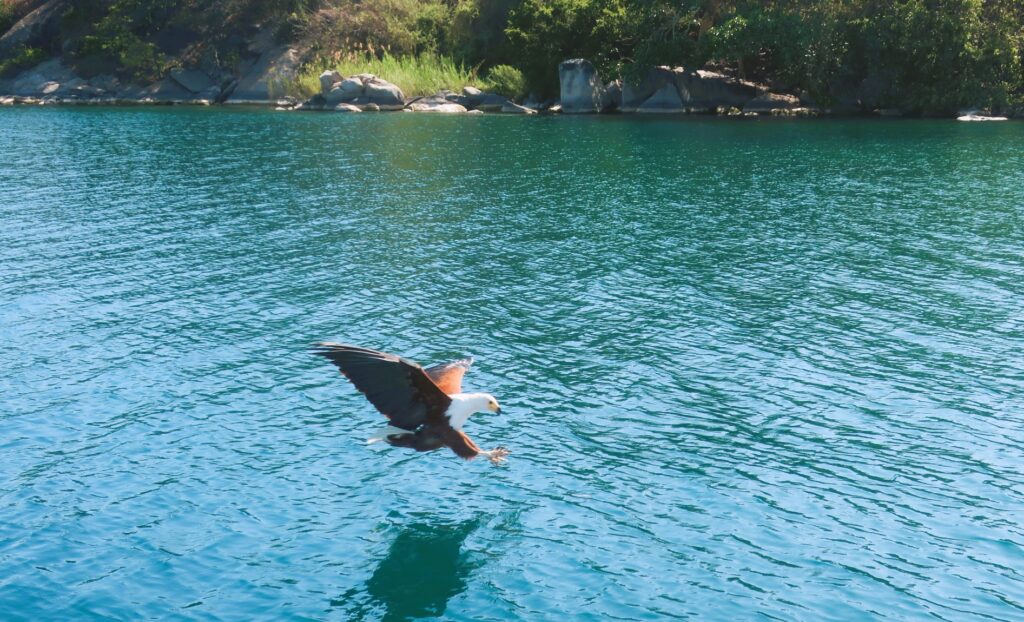
We get a photo of one scooping a fish out of the lake. (To be honest, it was a dead fish that Moses threw in.)
On the way back, we skirt the coast along Chembe village. Apparently it was much smaller at one time. Now it’s a raucous town with hundreds of fishing boats puttering out into the lake at all hours.
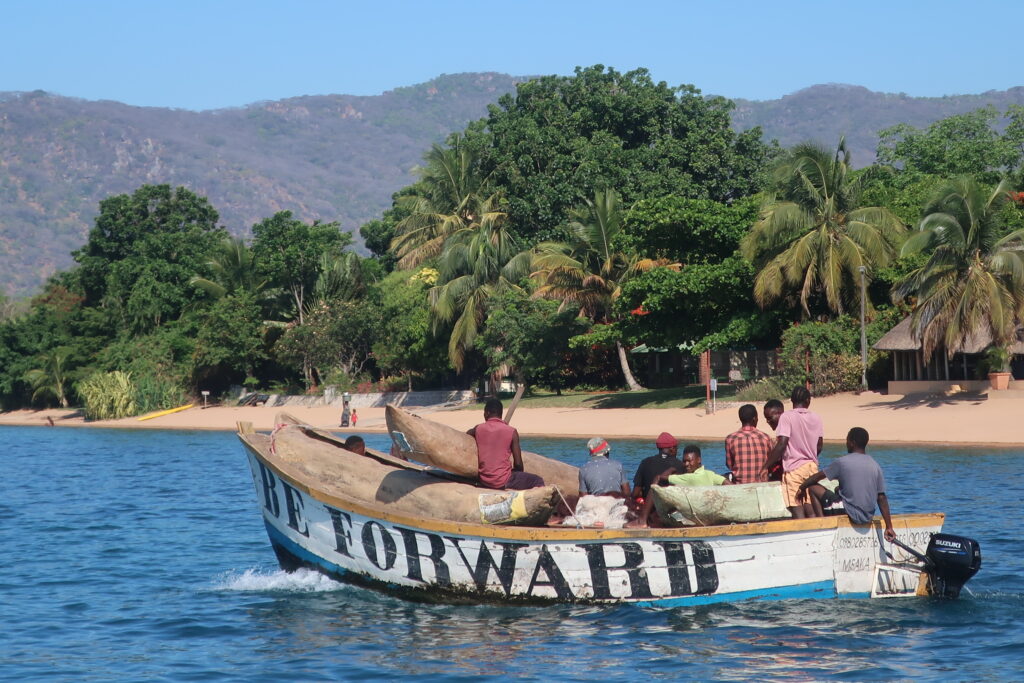
We mentioned the two Finnish women and their snazzy Land Rover. We’re perfect neighbours for each other because we’re all quiet and unintrusive.
They work as bear guides in Finland in the summer. Then they spend months traveling in this vehicle, which they purchased in Namibia. They leave it in Africa when they return to Europe.
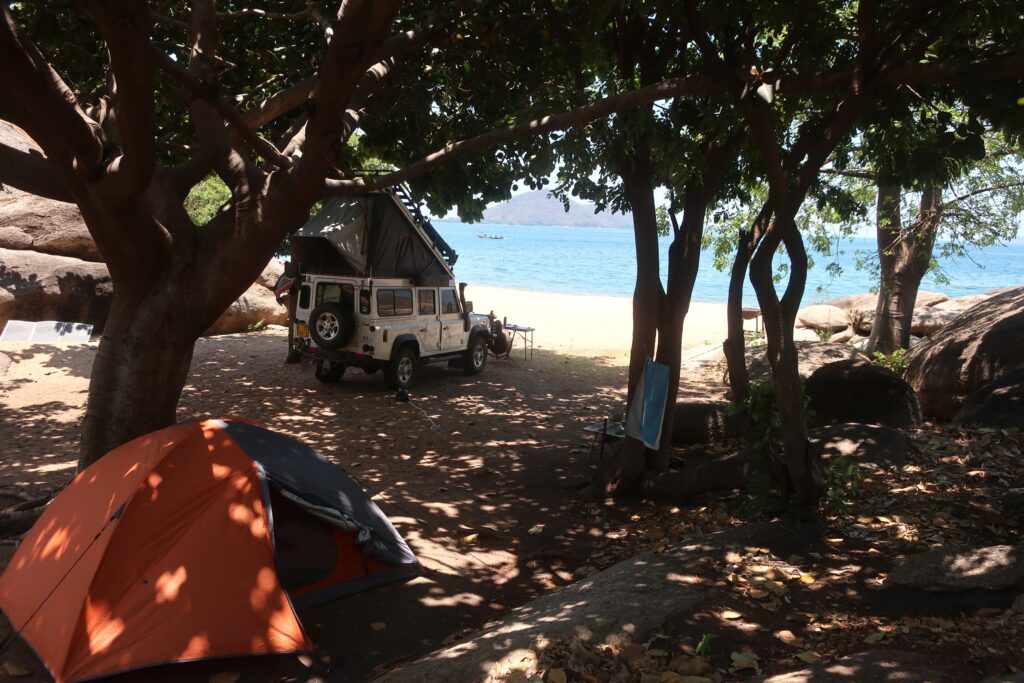
We drive north. Along the way, we stop in at the Mua mission. The Kungoni Art and Craft Centre is part of this mission. Started in 1976 by Father Claude Boucher (from Canada), who is still there today. The Centre has surprisingly well-carved items, compared to the usual tourist tat.
We succumb to the urge to buy a little something for our travel wall.
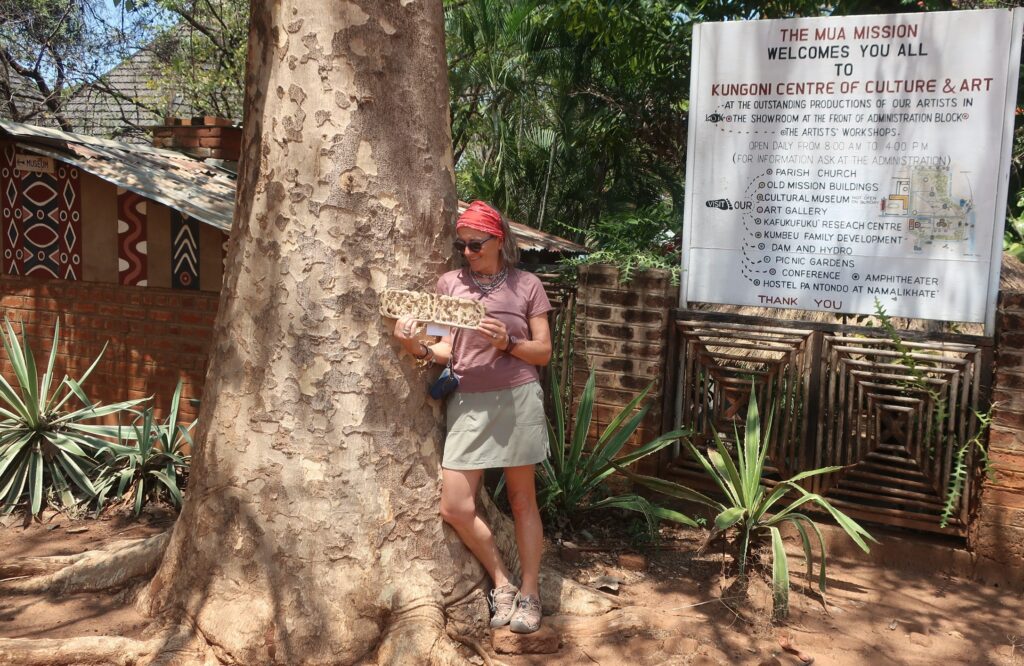
The mission also provides accommodation that looks like a slice of Tuscany.
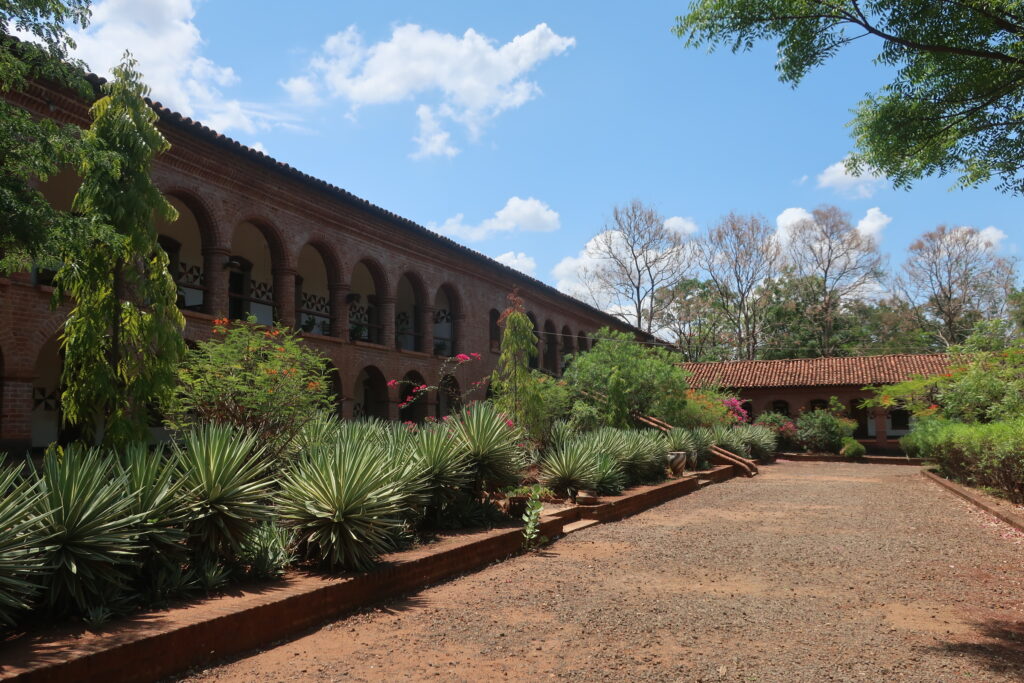
There’s also a church with African murals inside and out.
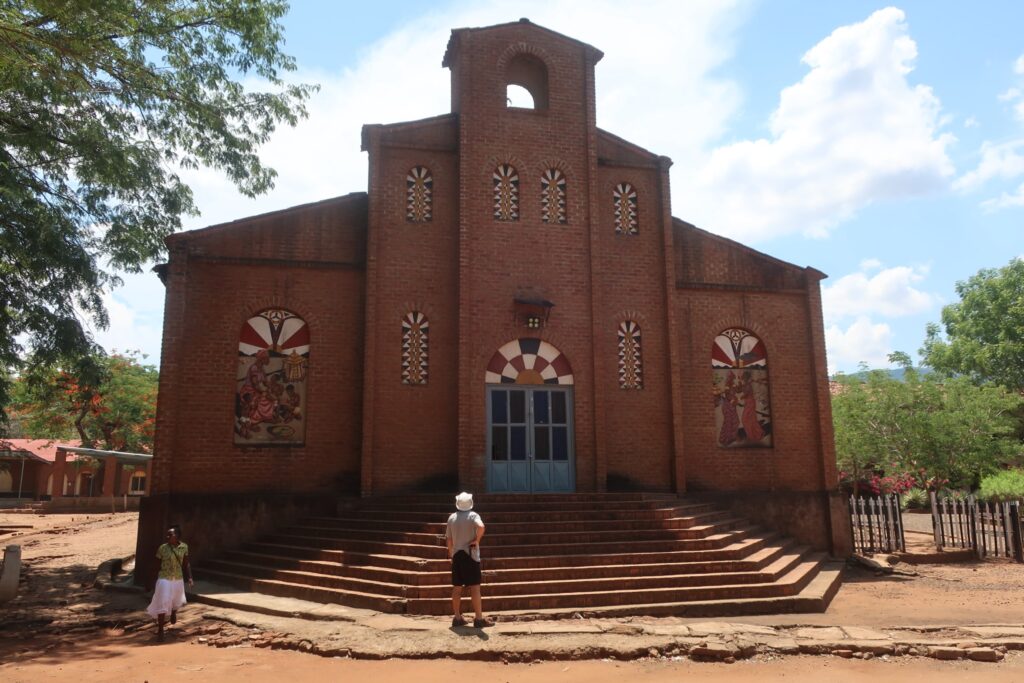
Because it’s Sunday, every town is full of people attending services of some kind.
Malawians are mostly Christian of varying sects, with a big sprinkle of Muslims in most places. Everyone seems to get along well. Local Muslims don’t seem to be caught up in the wave of head-severing Islamist violence in Africa that is cutting a swathe from northern Mozambique to Somalia and across the Sahel to the Atlantic Ocean. Western media isn’t interested in reporting this, for some reason.
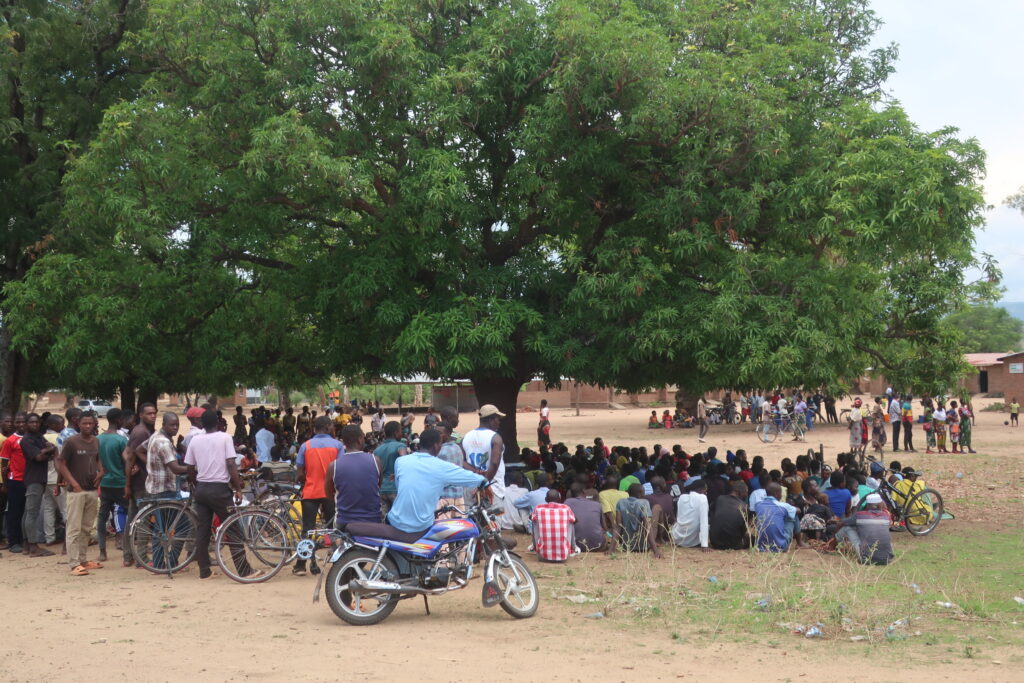
We break our journey at the Bua River Lodge. We intend to camp, but are told that they no longer allow camping because elephants roam the property at night.
We are the only guests, so we get a deluxe tent with a broad balcony to ourselves.
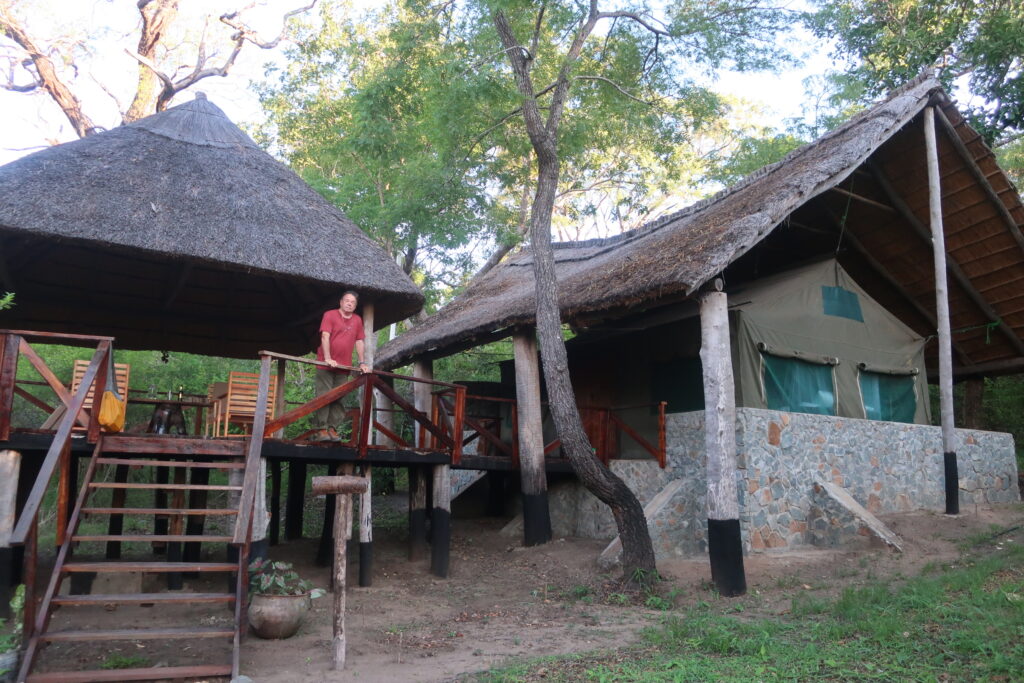
We get a guided walking tour along the river, home to lots of crocodiles.
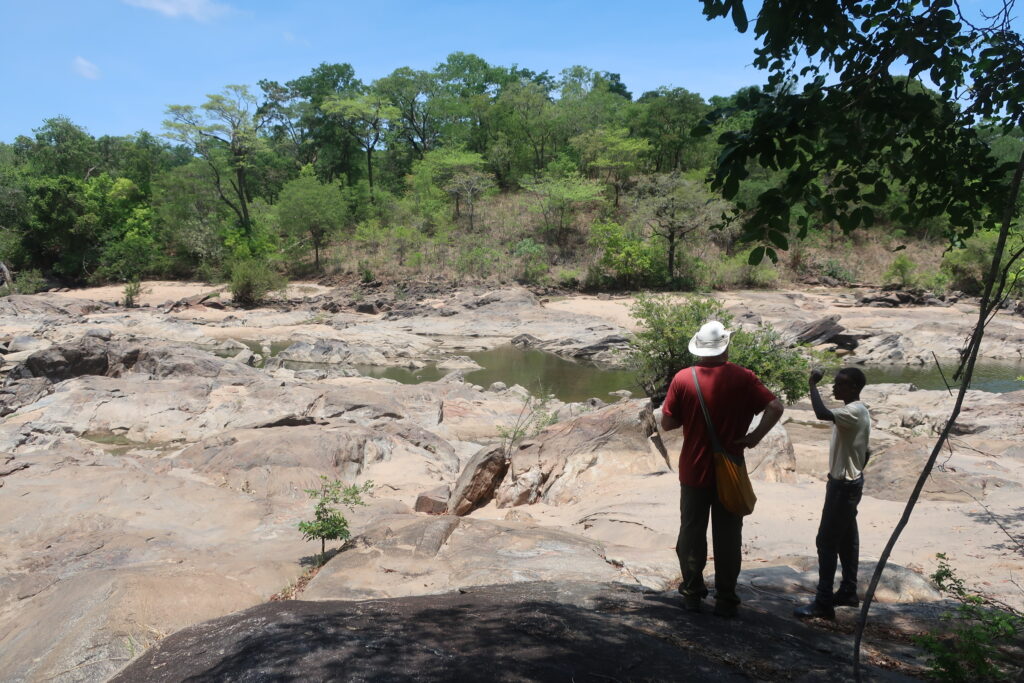
The pattern of a croc tummy is printed in the sand where one just slipped into the river.
It’s so relaxing, we decide to stay over another day.
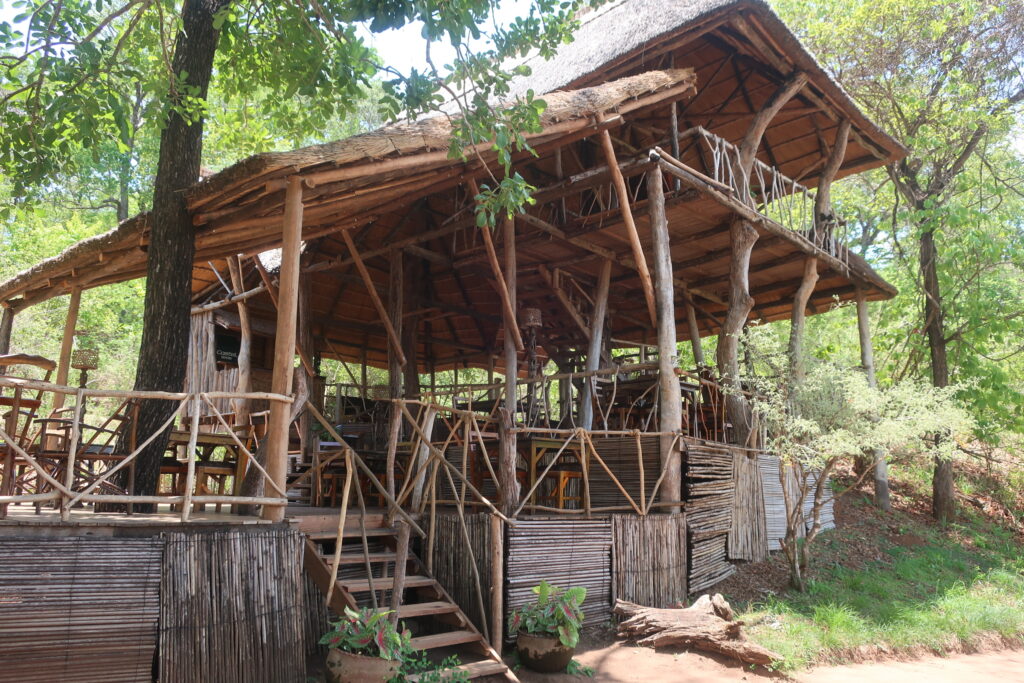
At night, the friendly South African couple who manage the place cook us a BBQ.
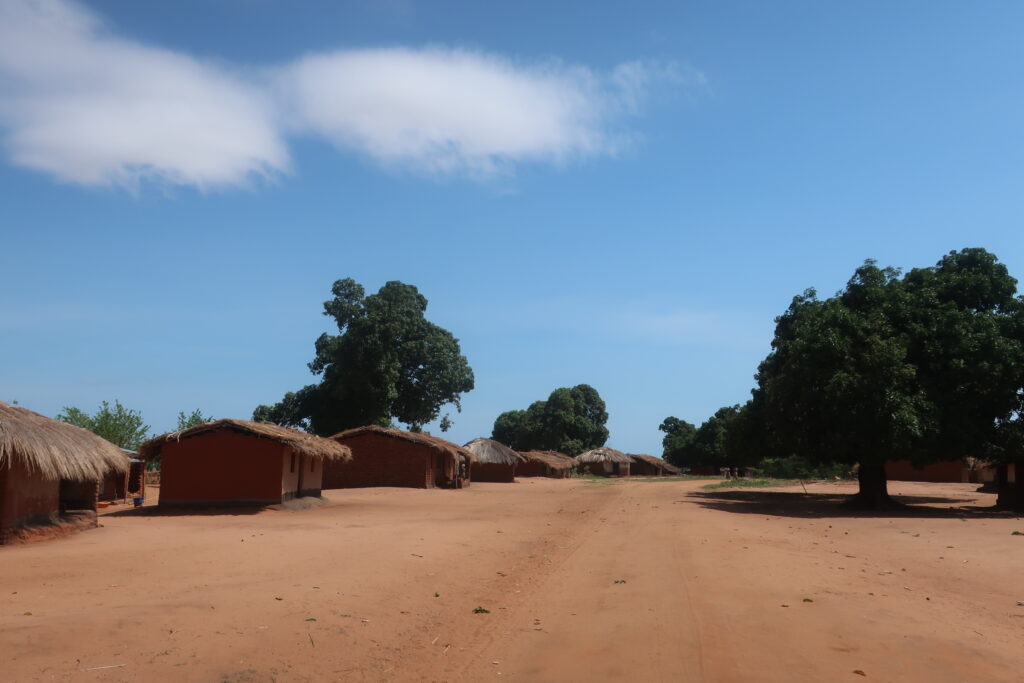
It’s about ten kilometres from the lodge back to the main road. The traditional villages we pass through on the way look much more pleasant than the squalid towns along the highway.
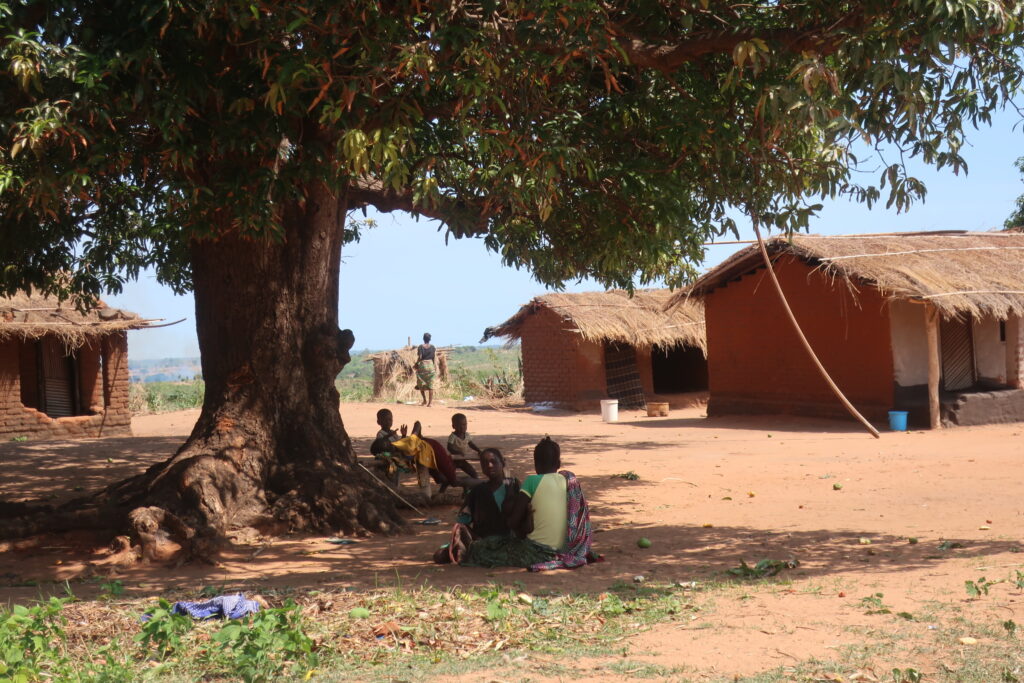
We have noticed this elsewhere in the country (elsewhere in Africa too) when we wander off the beaten track. It’s the lack of economic opportunity that drives people away.
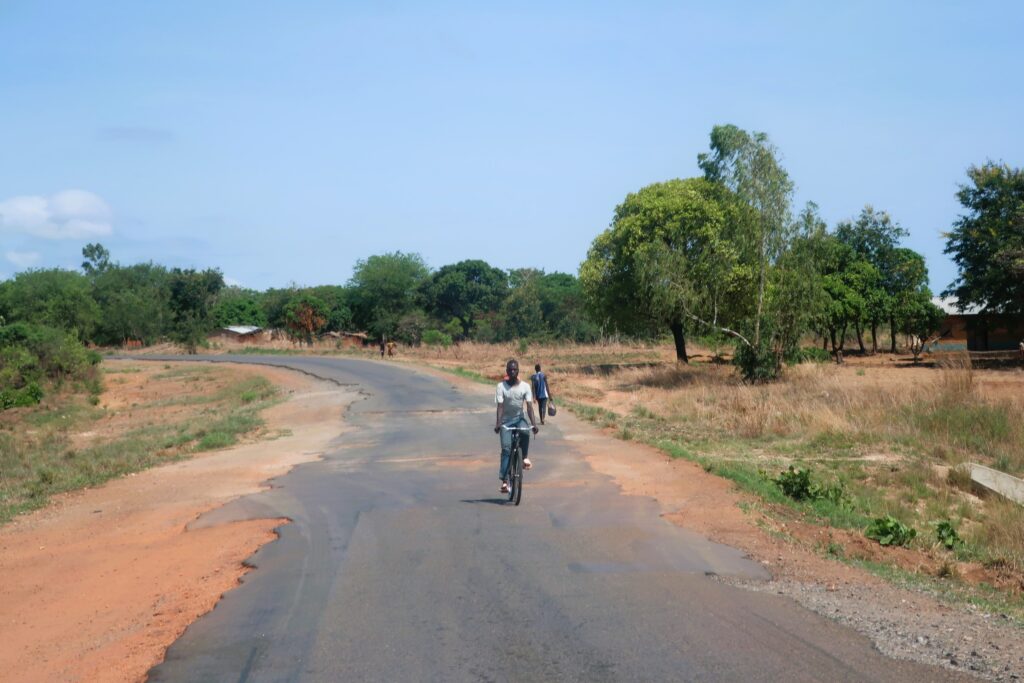
Back on the main road, bound for Nkhata Bay. The road is appalling in some places. Potholes the size of the Grand Canyon. The edges have crumbled off, leaving a steep drop to be risked whenever we pull over to let a big truck pass along what is now a single lane. Fortunately, there aren’t many big trucks. And the road does eventually improve.
Sight or Insight of the Day
In search of something to read, I come across a well-used Penguin paperback copy of Villette, Charlotte Brontë’s last novel in a book swap shelf.
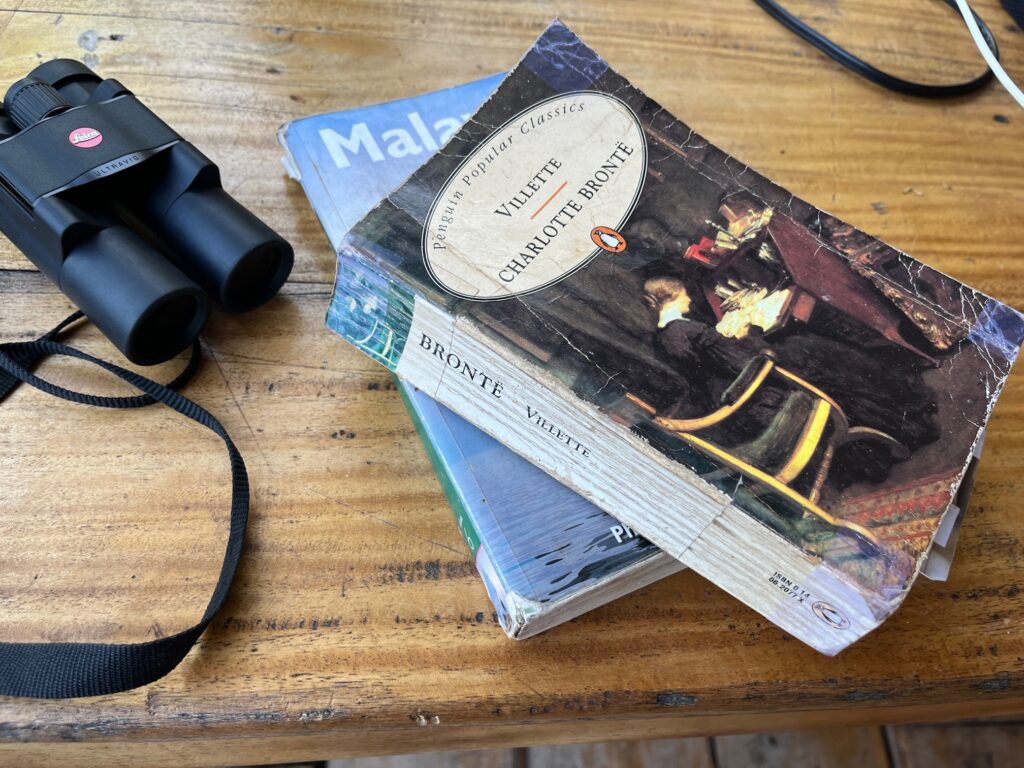
I’m getting a kick out of the mid-nineteenth-century dialog. It’s full of exchanges like this:
Dr. John: “Do you and she correspond?”
Lucy Snowe: “It will astonish you to hear that I never once thought of making application for that privilege.” (This is mid-nineteenth-century English for ‘No.’)
Imagine living in a time when people actually spoke like this! Too bad most people today wouldn’t think of reading a book written in another decade, let alone in another century. (Or another millennium.)
I can imagine a future where ALL books that don’t meet certain criteria of diversity, equity, and inclusivity will be consigned to raging bonfires, Fahrenheit 451-style. Not ’til after I’m gone, I hope.
